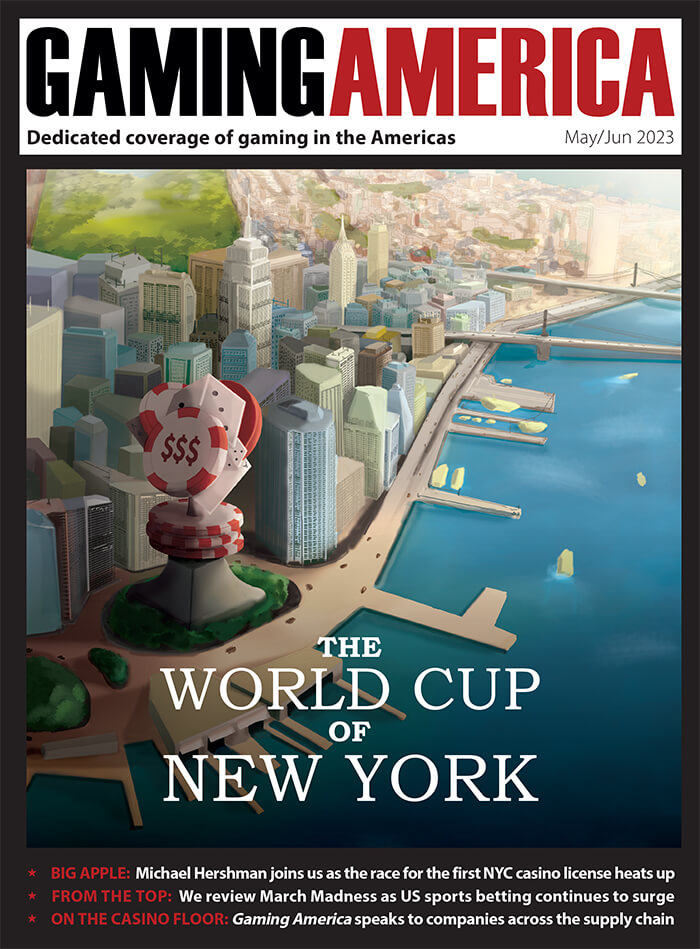
Passport is currently operating in the US, the UK and Canada. We wanted to know what the biggest challenges have been within the US market, and if you found any particular states more challenging to work in than others.
The biggest challenge of working in the US for us, because we’re a relatively smaller company, is our presence and our name aren’t really well known. We built a base of business in certain jurisdictions and certain states. The biggest hurdle right now, is just more name recognition than anything else. What we found is when we bring customers in to see us, and we show them the story and where we’re going on our road map, they tend to get very excited. We tend to win a lot of business that way. It’s really just the fact that what we stand for in the in the eyes of the customers isn’t quite as well known. Now that we have a national salesforce, we’re starting to get the word out.
Is one of those things that customers are getting excited about the DataStream offering? Can you tell us how that works?
The DataStream is essentially a switch processor that powers our ATM and our debit POS services. It’s something that John Steely (COO/CIO) and Kent Cain (SVP Platform Operations) have spent many, many years developing and building. We’ve been powering retail ATMs for a number of years. We got it registered in the gaming environment, so now we can use it with our casino customers. It’s cloud-based, so it offers greater redundancy, just from an architecture standpoint. It also allows greater redundancy on the floor, so the reliability factor is much improved. We can add specific products through the software just for the gaming applications. We’re going to be introducing some fairly exciting new products through DataStream, only available in the DataStream, and those will be available to our casino customers. It offers greater reliability, greater redundancy, full control within our own stack and some exciting new products and features.
One of the features we wanted to ask about is your loyalty products and how those work. The Lush Loyalty product is a kiosk-based product, but it offers web HTML5. It offers a full suite of promotions, player enrollment, points management and the ability for patrons to earn rewards points through games that either we can develop or the casino can develop. We’ve set up a template and we’ve made it very easy for the casino to go in and modify their promotions as they need to. Because marketing groups like to constantly refresh their promotions, and like to keep things exciting, our service really allows them to do that. On top of that, we’re also building this out to a mobile environment. We have an API that sits behind us, allowing us to integrate with all of the casinos’ functions, be it food and beverage, the retail function, or hotel management. This API is very powerful because you can integrate everything within one app. Lush is one of our products that, when we do get in front of customers, and demonstrate it to them and show them what it does, they can really see the capabilities and really get excited about it.
Has there been either one industry advancement, or an advancement within Passport, that’s really furthered your company’s success, like API or the cloud?
I think it’s actually both the DataStream and the Lush Loyalty, and the way we architected both of those. With a lot of cloud-based and HTML5-based services, we’ve been able to architect these products so that they are much, much more flexible. We’ve been able to create a DataStream and build it in a way that’s not built up of legacy systems. And what that means is, we’re able to kind of manipulate the data; we’re able to manipulate the products and introduce products much, much more rapidly than our competitors. On the loyalty side of things, we built it in a way that really puts a lot more flexibility in the hands of the customers. We think that’s a feature that casinos will appreciate. We can certainly do it for them, but it just allows them a level of customization when they’re running their marketing programs, that we think is very, very powerful. It’s the ability to create these things in a way that it is much more palatable now, much faster and much more flexible for our casino customers.
Has there been one payment solution that’s become your most popular over the years?
I don’t necessarily think that there’s any specific payment solution that’s the most popular. I think in terms of the payment types, we sort of follow the industry, in terms of what customers tend to gravitate toward. But in terms of the popularity of what people see when they come see us for a demonstration, the Lush is very popular. We have a jackpot device that is also proving to be very, very popular. The jackpot is essentially not really a payment device, but allows the casino to pay out their jackpots much more quickly and efficiently, which we think is really a customer satisfaction and a casino kind of cash-on-the-floor improvement. The way we’ve done that is, we’ve built something with a mobile application so that a jackpot attendant can essentially fulfil a jackpot right on the spot with the customer. Whereas, right now it’s a process that involves a jackpot attendant going to the customer’s slot, shutting down the slot, going back to the hardware machine on the floor, doing a bunch of paperwork and then going back to customer. It’s really a very long and tedious process, and we’ve shortened that, so that’s another product that we are finding to be very popular.
Speaking of that casino floor and the flow of cash, do you think fully cashless operation will ultimately be the future?
I don’t necessarily think that casino floors will be completely cashless. I do think digital wallets and cashless operations will become more popular, but I think cash is a pretty frictionless operation on the floor. The customer is ultimately going to drive what’s on the floor. I think that there is a certain set of customers, be they of the older set that’s comfortable with cash, or whether there is a group that tends to like to play anonymously, simply because they don’t necessarily want to be tracked. There’s always going to be a set of customers that are going to want to use cash – whether that set of customers is 50%, 20%, 80% – it could be any of the above. It’ll follow a growth curve, but I don’t think cash will completely disappear off the floor.
Do you plan to work with any US-based responsible gaming organizations? We know that you do within Canada and the UK.
It’s part of our DNA to always be working with the regulators and always have a focus on responsible gaming. To the extent that we have opportunities to work with them, we certainly explore those opportunities, and are always looking for those opportunities. Like I said, it’s part of our DNA; it’s part of how we were founded in the UK and Canada. We’re certainly bringing that perspective to the US.

